Louis Malle was a French film director and producer who made an indelible mark on the world of cinema. He was known for his versatility and his willingness to tackle a wide range of subject matter, from comedy to drama, from historical epics to intimate character studies.
Malle’s films were marked by their intelligence, their sensitivity, and their nuance. He had a keen eye for social issues, and many of his films explored the complexities of the human experience, especially as they related to issues of class, race, and sexuality.
Some of Malle’s best-known films include “The Lovers” (1958), “Elevator to the Gallows” (1958), “My Dinner with Andre” (1981), and “Au revoir les enfants” (1987).
“The Lovers” and “Elevator to the Gallows” established Malle as a major figure in the French New Wave, while “My Dinner with Andre” and “Au revoir les enfants” are widely regarded as two of his finest works.
Best Louis Malle Films
If you are a fan of French cinema, or are interested in exploring the work of one of the 20th century’s most talented and versatile filmmakers, Louis Malle’s films are definitely worth checking out.
From his early experimental works to his later masterpieces, Malle’s films offer a window into the human condition that is both enlightening and deeply moving.
1. My Dinner with Andre (1981)
“My Dinner with Andre” is a 1981 film directed by Louis Malle and starring Andre Gregory and Wallace Shawn. The film consists of a single conversation between the two actors, who play fictionalized versions of themselves, over the course of a long dinner at a restaurant.
Throughout the conversation, they discuss a wide range of philosophical, spiritual, and artistic topics, including the nature of reality, the role of the artist in society, and the meaning of life.
The film is known for its unconventional structure and minimalist approach to storytelling. Rather than relying on action or plot, the film is driven entirely by the dialogue between the two actors. The conversation is engaging and thought-provoking, and the film is often praised for its intelligence and depth.
One of the film’s most notable characteristics is its use of long takes and static camera shots. The camera remains focused on the actors for extended periods of time, allowing the audience to become fully immersed in the conversation.
The film also makes use of a variety of visual and sound effects to heighten the impact of the dialogue.
“My Dinner with Andre” is a unique and thought-provoking film that challenges the viewer to engage with complex ideas and philosophical questions. It remains a classic of the art-house cinema genre, and is often cited as an example of the power of dialogue-driven storytelling.
- Popular Fox-Lorber studio produced
- Andre Gregory, Wallace Shawn, Jean Lenauer (Actors)
- Louis Malle (Director) - Andre Gregory (Writer)
- Audience Rating: Unrated (Not Rated)
2. Elevator to the Gallows (1958)
“Elevator to the Gallows” is a French film noir directed by Louis Malle and released in 1958.
The film stars Jeanne Moreau and Maurice Ronet, and tells the story of a man and a woman who conspire to commit a murder, only to find themselves trapped in an elevator overnight while the police search for them.
The film is notable for its stylish black-and-white cinematography, which creates a tense and claustrophobic atmosphere, and for its iconic score by jazz musician Miles Davis. It also features strong performances from Moreau and Ronet, who bring depth and nuance to their characters.
At its core, “Elevator to the Gallows” is a meditation on the human capacity for violence and deception, and the ways in which our actions can have unforeseen consequences.
The film explores themes of love, desire, and existential crisis, and uses its complex narrative structure to challenge our assumptions and expectations.
Louis Malle, the director of “Elevator to the Gallows,” was known for his ability to blend elements of documentary and fiction in his films, and for his innovative approach to storytelling.
If you like Louis Malle’s work, on our sister site AuteurGraph we have a profile page, a visual film timeline, and a ratings page that gives a tonne of info and data about their career in a visualized form.
“Elevator to the Gallows” is a prime example of his skill as a director, and a classic of the French New Wave movement. It is a must-see for fans of film noir, jazz music, and innovative cinema.
No products found.
3. Murmur of the Heart (1971)
“Murmur of the Heart” is a French coming-of-age film released in 1971, directed by Louis Malle. The film is a semi-autobiographical work and follows the story of Laurent Chevalier (played by Benoit Ferreux), a precocious 14-year-old growing up in a bourgeois family in the early 1950s.
The film depicts Laurent’s experiences as he navigates his emerging sexuality, relationships with his family members, and the societal pressures that surround him.
Laurent has a close relationship with his mother, Clara (played by Lea Massari), and their bond is put to the test when he contracts a heart murmur and has to undergo a medical examination.
The film explores the tensions and complexities of their relationship, as well as Laurent’s journey towards independence and self-discovery.
“Murmur of the Heart” is notable for its frank and honest portrayal of adolescence and sexuality, as well as its exploration of the complexities of family dynamics. The film received critical acclaim upon its release and has since become regarded as a classic of French cinema.
- Murmur of the Heart (1971) ( Le Souffle au coeur ) ( Dearest Love )
- Murmur of the Heart (1971)
- Le Souffle au coeur
- Dearest Love
- Daniel Gélin, Michael Lonsdale, Lea Massari (Actors)
4. Au Revoir, Les Enfants (1987)
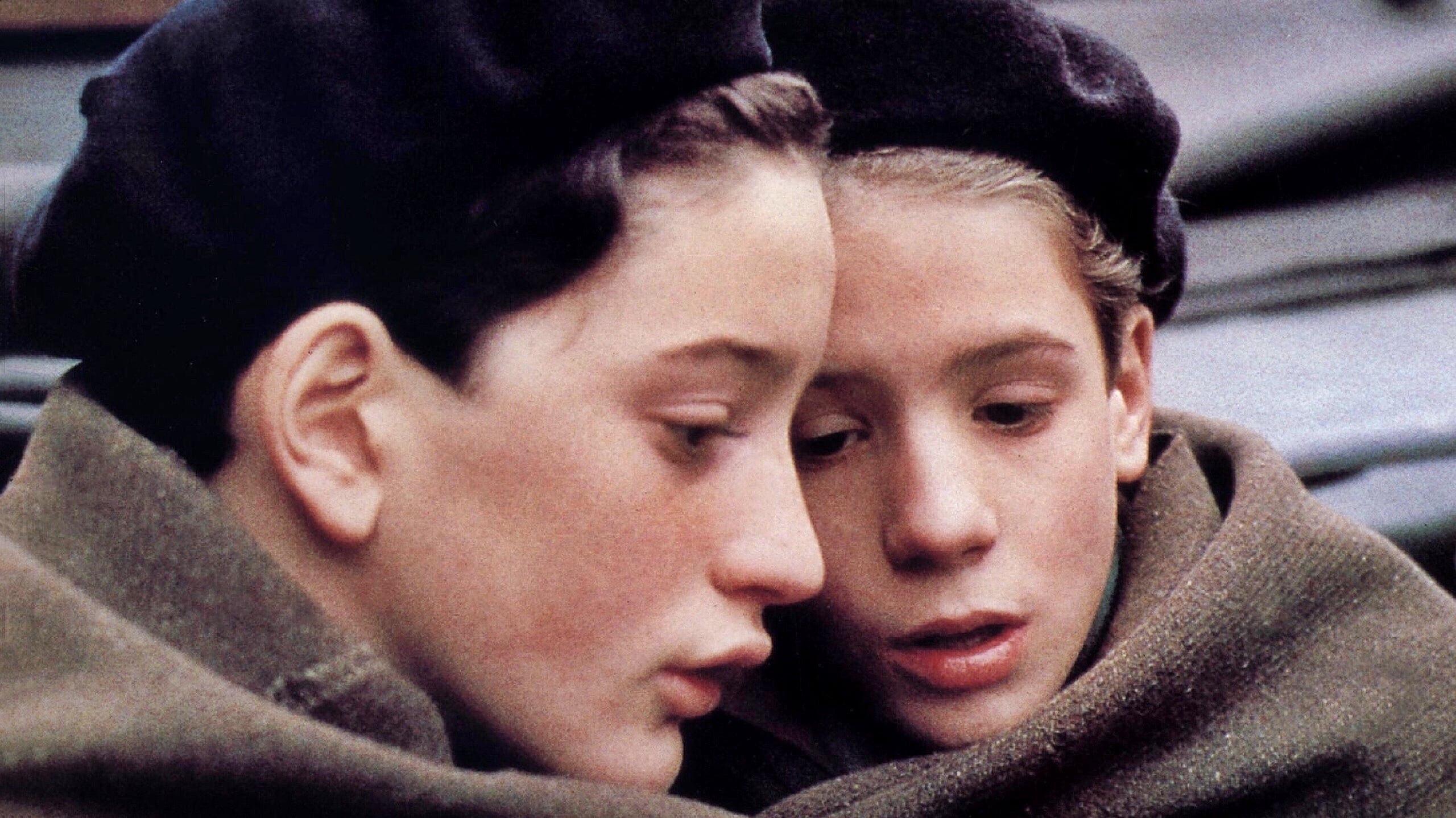
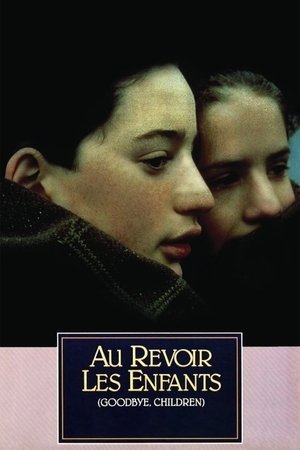
Au Revoir les Enfants
1987 • 1h 45min • ★ 7.508/10 • Germany
Directed by: Louis Malle
Cast: Gaspard Manesse, Raphael Fejtö, Francine Racette, Stanislas Carré de Malberg, Philippe Morier-Genoud
Au revoir les enfants tells a heartbreaking story of friendship and devastating loss concerning two boys living in Nazi-occupied France. At a provincial Catholic boarding school, the precocious youths enjoy true camaraderie—until a secret is revealed. Based on events from writer-director Malle’s own childhood, the film is a subtle, precisely observed tale of courage, cowardice, and tragic awakening.
Au Revoir, Les Enfants is a 1987 French film directed by Louis Malle. The film is set in 1944, during the German occupation of France, and tells the story of a Catholic boarding school that becomes a refuge for Jewish children fleeing Nazi persecution.
The film is based on Malle’s own experiences during the war and is a deeply personal exploration of the themes of betrayal, loyalty, and the consequences of prejudice.
The film is notable for its nuanced portrayal of both the French collaborators and the resistance fighters, and for its delicate handling of the relationship between the two young boys at the heart of the story.
The film’s cinematography is also striking, with Malle’s use of natural light and understated camera movements creating a sense of intimacy and authenticity.
Overall, Au Revoir, Les Enfants is a powerful and deeply moving film that showcases Malle’s skill as a filmmaker and his ability to handle difficult subject matter with sensitivity and nuance. The film is a poignant reminder of the human cost of war and the importance of compassion and solidarity in the face of oppression.
- Goodbye, Children (1987) ( Au revoir les enfants )
- Goodbye, Children (1987)
- Au revoir les enfants
- Philippe Morier-Genoud, François Berléand, François Négret (Actors)
- Louis Malle (Director) - Goodbye, Children (1987) ( Au revoir les enfants ) (Producer)
5. The Fire Within (1963)
“The Fire Within” is a 1963 French drama film directed by Louis Malle and starring Maurice Ronet, Jeanne Moreau, and Alexandra Stewart. The film is based on the novel “Will O’ the Wisp” by Pierre Drieu La Rochelle.
The film tells the story of Alain Leroy (Ronet), a recovering alcoholic and former writer who is struggling with the ennui and aimlessness of his life.
Over the course of a single day, Alain reconnects with old friends, visits former lovers, and contemplates suicide. As he confronts his own mortality and searches for a reason to live, the film explores themes of isolation, regret, and the search for meaning in life.
“The Fire Within” is widely regarded as a masterpiece of French cinema, and is known for its stunning black-and-white cinematography, elegant direction, and powerful performances.
The film’s exploration of existential themes and its deeply introspective tone have made it a favorite of cinephiles and critics alike, and it remains a landmark of the French New Wave movement.
- Amazon Prime Video (Video on Demand)
- Maurice Ronet (Actor)
- Louis Malle (Director) - Pierre Drieu La Rochelle (Writer)
- English (Playback Language)
- English (Subtitle)
6. Zazie dans le Métro (1960)
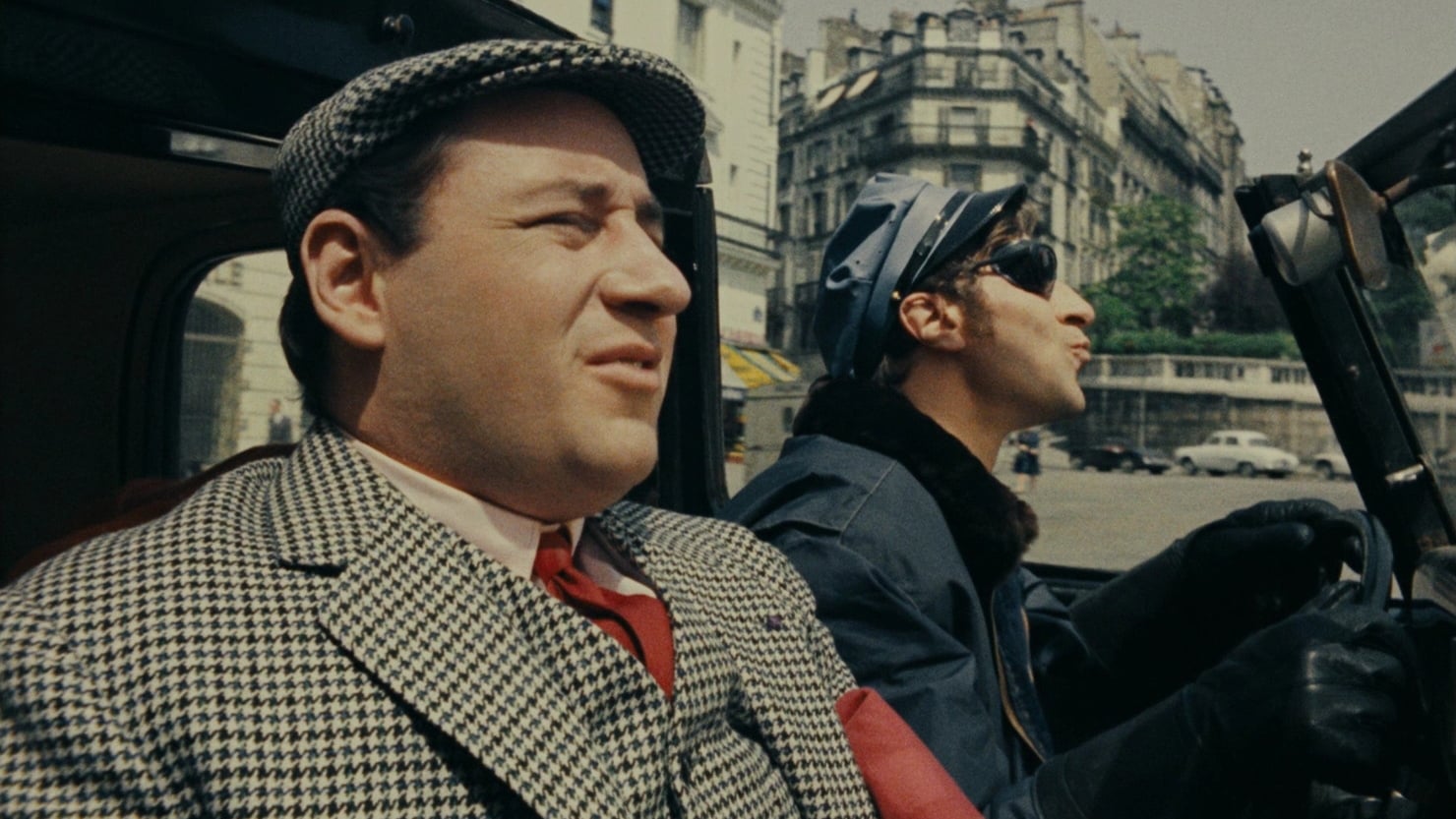
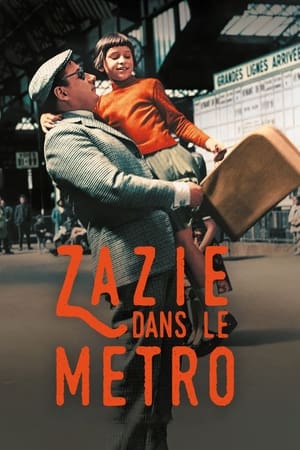
Zazie dans le Métro
Liberté... Insanité... Hilarité!
1960 • 1h 33min • ★ 6.616/10 • France
Directed by: Louis Malle
Cast: Catherine Demongeot, Philippe Noiret, Hubert Deschamps, Carla Marlier, Annie Fratellini
A brash and precocious ten-year-old comes to Paris for a whirlwind weekend with her rakish uncle.
“Zazie dans le Métro” is a 1960 French film directed by Louis Malle and based on the novel of the same name by Raymond Queneau.
The film tells the story of a precocious young girl named Zazie (Catherine Demongeot) who comes to Paris to stay with her uncle Gabriel (Philippe Noiret) for two days. Zazie’s ultimate goal is to ride the Paris Métro, but a transportation strike prevents her from doing so, leading her on a series of misadventures through the city.
The film is known for its surreal and whimsical tone, its use of slapstick comedy and absurd situations, and its sharp commentary on the state of French society in the late 1950s.
Malle’s direction is marked by his playful use of the camera, his inventive editing techniques, and his willingness to push the boundaries of conventional filmmaking.
“Zazie dans le Métro” is widely regarded as one of Malle’s most beloved and influential films. Its free-wheeling spirit and offbeat humor have inspired countless filmmakers and artists, and its exploration of the relationship between adults and children remains as resonant today as it was over 60 years ago.
If you’re a fan of surrealism, French New Wave cinema, or unconventional comedies, “Zazie dans le Métro” is definitely worth checking out.
- Factory sealed DVD
- Catherine Demongeot, Philippe Noiret, Hubert Deschamps (Actors)
- Louis Malle (Director)
- English (Subtitle)
- English (Publication Language)
7. Atlantic City (1980)
“Atlantic City” is a 1980 drama film directed by Louis Malle and starring Burt Lancaster and Susan Sarandon.
The film tells the story of a small-time gangster named Lou (played by Lancaster), who becomes romantically involved with a young woman named Sally (played by Sarandon) after she comes to Atlantic City to learn how to be a croupier.
The film is known for its portrayal of the seedy underbelly of Atlantic City, with its crumbling buildings, rundown casinos, and corrupt characters. It also explores themes of nostalgia, regret, and the passing of time, as Lou reflects on his past and contemplates his future.
One of the film’s most notable characteristics is its attention to detail and realism. The setting of Atlantic City is portrayed with gritty authenticity, and the characters are complex and well-developed.
The film also features strong performances from its lead actors, with Burt Lancaster bringing a sense of world-weariness to his role as Lou, and Susan Sarandon delivering a nuanced and emotional performance as Sally.
The film’s score, composed by Michel Legrand, is also noteworthy for its haunting, melancholy tone. Overall, “Atlantic City” is a powerful and poignant film that explores the human condition with depth and sensitivity.
It remains a classic of the drama genre, and is worth watching for fans of Louis Malle’s work or for anyone interested in character-driven storytelling.
- Burt Lancaster, Susan Sarandon, Kate Reid (Actors)
- Louis Malle (Director) - John Guare (Writer)
- English (Subtitle)
- Audience Rating: R (Restricted)
8. Damage (1992)
“Damage” is a British drama film directed by Louis Malle and released in 1992. The film stars Jeremy Irons and Juliette Binoche, and tells the story of a middle-aged British politician who becomes involved in a torrid and destructive affair with his son’s fiancée.
The film is notable for its powerful performances, particularly from Irons and Binoche, who bring a deep emotional intensity to their roles. It also features a haunting score by composer Zbigniew Preisner, which adds to the film’s atmosphere of melancholy and despair.
At its core, “Damage” is a searing examination of the destructive power of desire, and the ways in which it can drive people to betray those they love and destroy their own lives.
The film explores themes of guilt, shame, and the corrosive effects of repression, and offers a devastating portrait of a man who is consumed by his own passions.
Louis Malle, the director of “Damage,” was known for his ability to blend elements of realism and poetry in his films, and for his unflinching exploration of the human condition.
“Damage” is a powerful and emotionally devastating film that will stay with you long after the credits have rolled. It is a must-see for fans of intense, character-driven drama.
- Amazon Prime Video (Video on Demand)
- Jeremy Irons, Juliette Binoche, Miranda Richardson (Actors)
- Louis Malle (Director) - David Hare (Writer) - Louis Malle (Producer)
- English (Playback Language)
- English (Subtitle)
9. May Fools (1990)
“May Fools” (French title: Milou en Mai) is a 1990 French film directed by Louis Malle. The film is set in May 1968 and follows the story of a dysfunctional bourgeois family that comes together on their family estate in rural France to mourn the death of the family matriarch.
The film explores the family’s relationships, conflicts, and secrets as they navigate the social and political upheaval of the time.
As the family members come together, they find themselves caught up in the events of May 1968, a period of civil unrest and student protests in France.
The family members are forced to confront their own beliefs and values as they become exposed to new ideas and perspectives. The film blends political and social commentary with humor and drama, creating a nuanced and complex portrait of a family in transition.
“May Fools” received positive reviews upon its release and is regarded as one of Malle’s most personal and introspective films. It is known for its strong ensemble cast, its poignant depiction of family dynamics, and its exploration of the legacy of May 1968 in France.
- May Fools (1990) ( Milou en mai ) ( Milou a maggio )
- May Fools (1990)
- Milou en mai
- Milou a maggio
- Miou-Miou, Michel Piccoli, Michel Duchaussoy (Actors)
10. Crackers (1984)
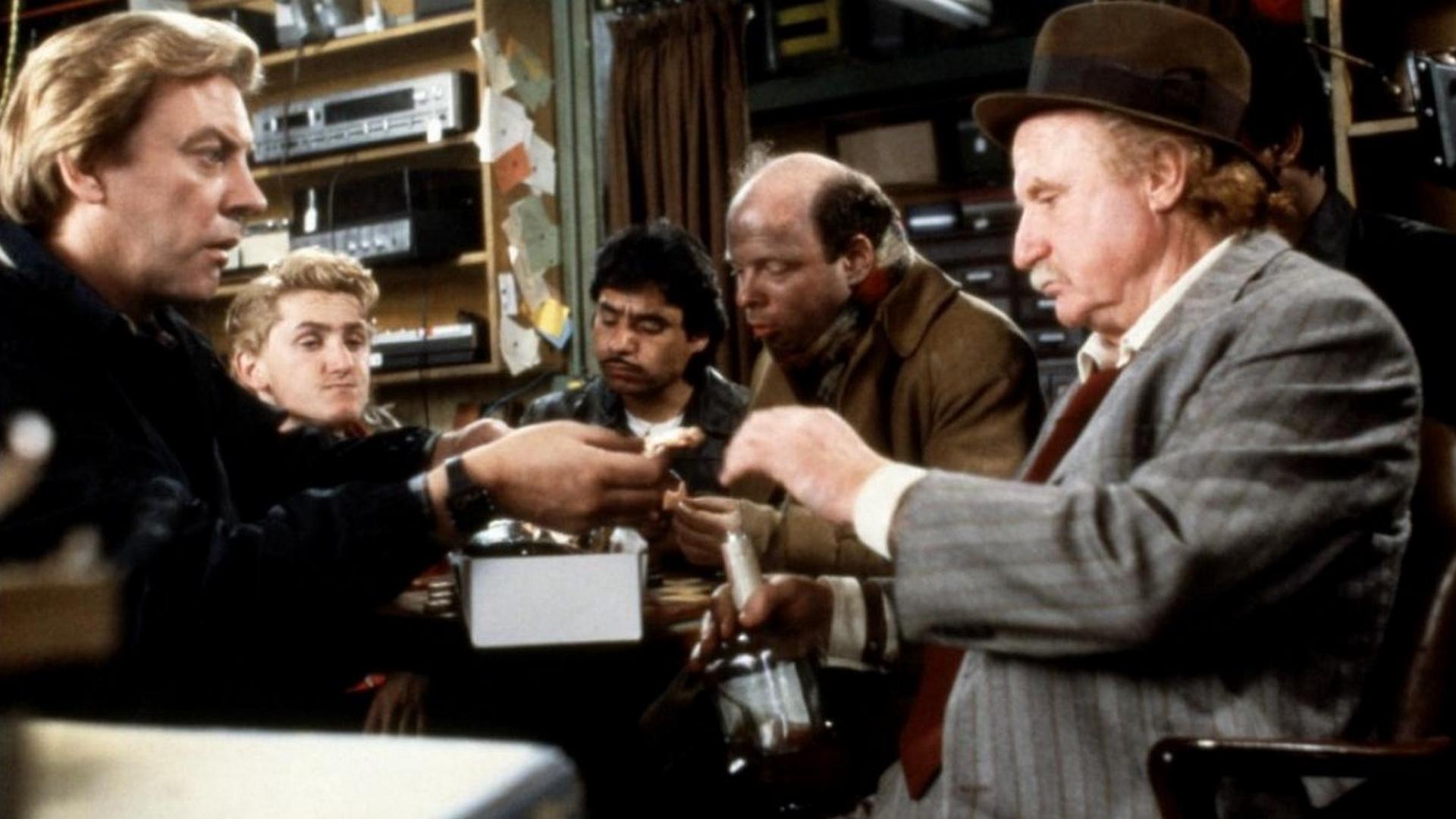
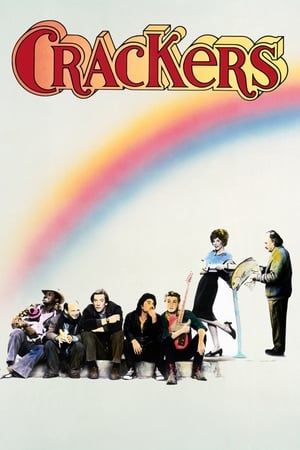
Crackers
The Comedy that dreams the impossible scheme!
1984 • 1h 38min • ★ 4.7/10 • United States of America
Directed by: Louis Malle
Cast: Donald Sutherland, Jack Warden, Sean Penn, Wallace Shawn, Larry Riley
In San Francisco, a group of down-and-out friends and a local pimp concoct a convoluted burglary plan on their pawnshop operator friend, all while navigating unexpected romantic entanglements that threaten to derail their heist.
Crackers is a 1984 American comedy film directed by Louis Malle. The film is a comedic caper that follows a group of eccentric characters as they attempt to rob a pawnshop in San Francisco.
The film is notable for its all-star cast, which includes Donald Sutherland, Sean Penn, Wallace Shawn, and Trini Alvarado, among others.
The film is a playful and lighthearted romp that revels in its characters’ quirks and idiosyncrasies. Malle’s direction is light and breezy, with a sense of playful irreverence that makes the film a joy to watch.
The film’s humor is broad and slapstick, and the performances are uniformly excellent, with each actor bringing their own unique flair to their character.
While not as weighty or profound as some of Malle’s other films, Crackers is an entertaining and enjoyable comedy that showcases the director’s range and versatility. The film is a testament to Malle’s ability to handle a wide range of genres and subject matter with equal skill and creativity.
- Amazon Prime Video (Video on Demand)
- Donald Sutherland, Jack Warden, Sean Penn (Actors)
- Louis Malle (Director) - Jeffrey Alan Fiskin (Writer) - Robert Cortes (Producer)
- English (Playback Language)
- English (Subtitle)
11. Lacombe, Lucien (1974)
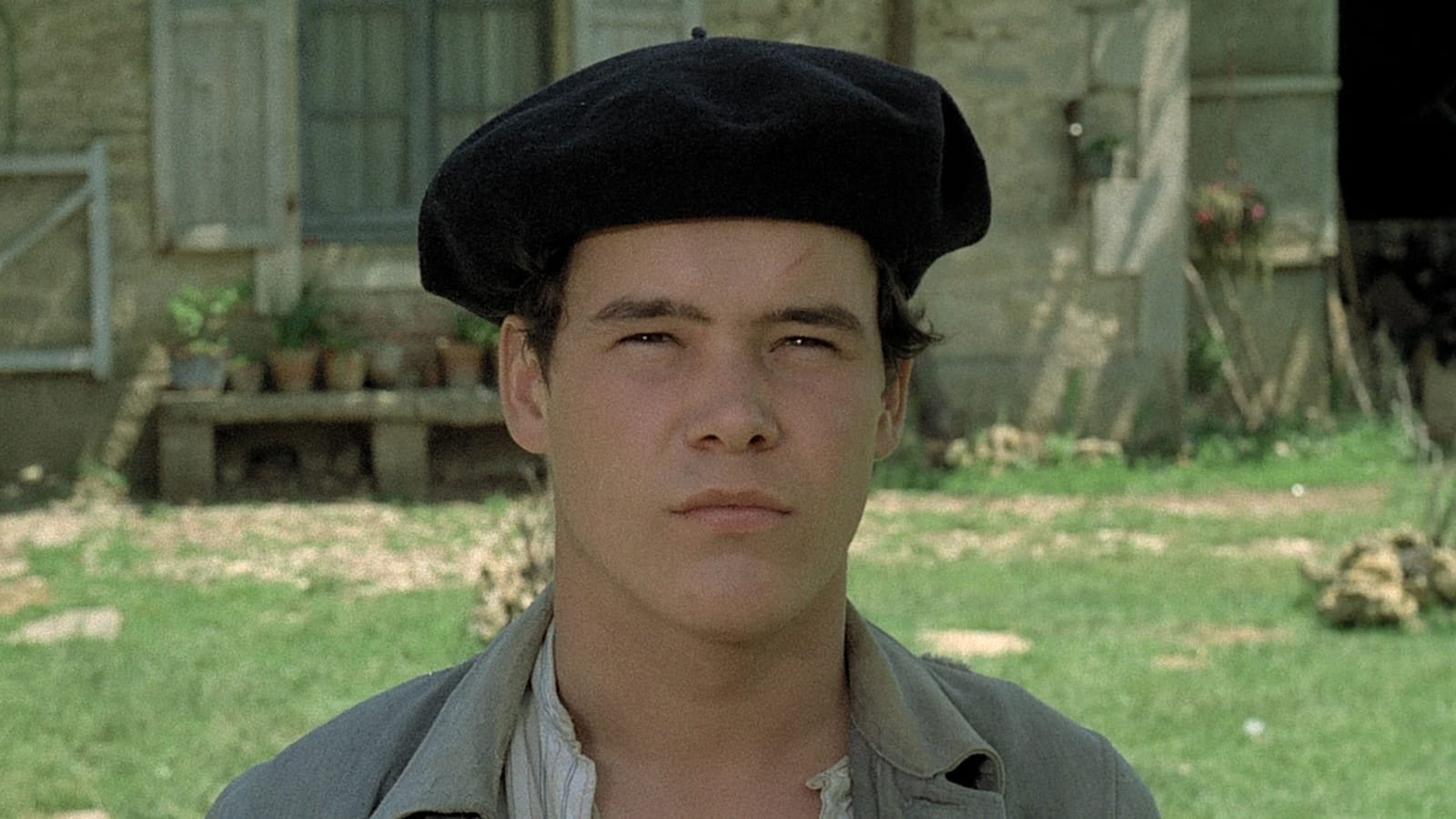
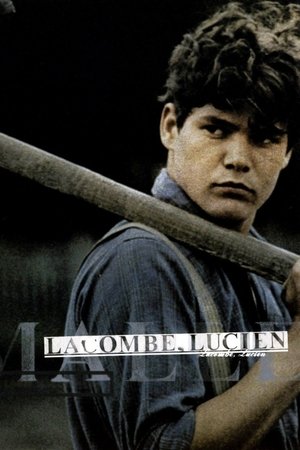
Lacombe, Lucien
1974 • 2h 18min • ★ 7.033/10 • Germany
Directed by: Louis Malle
Cast: Pierre Blaise, Aurore Clément, Holger Löwenadler, Therese Giehse, Stéphane Bouy
In Louis Malle's lauded drama, Lucien Lacombe is a young man living in rural France during World War II who seeks to join the French Resistance. When he is rejected due to his youth, the resentful Lucien allies himself with the Nazis and joins the Gallic arm of their Gestapo. Lucien grows to enjoy the power that comes with his position, but his life is complicated when he falls for France Horn, a beautiful young Jewish woman.
“Lacombe, Lucien” is a 1974 French war drama film directed by Louis Malle. The film is set in Nazi-occupied France during World War II and tells the story of a young peasant boy named Lucien Lacombe, who becomes a member of the French Gestapo and begins to collaborate with the Nazis.
Lucien, played by non-professional actor Pierre Blaise, is initially rejected from joining the French Resistance and then inadvertently ends up working for the Gestapo.
He is seduced by the power and status that come with his new role and becomes increasingly brutal in his treatment of the local population, particularly the Jews.
As the war progresses and Lucien becomes more deeply enmeshed in the Nazi system, he becomes involved in a relationship with a Jewish girl named France Horn, which complicates his loyalties and ultimately leads to a tragic conclusion.
“Lacombe, Lucien” is a powerful exploration of the moral complexities of collaboration and resistance during wartime, and is widely regarded as a landmark of French cinema.
The film is notable for its sensitive portrayal of the characters and its unflinching examination of the difficult choices that people were forced to make during one of the darkest periods in human history.
12. Pretty Baby (1978)
Pretty Baby is a 1978 American drama film directed by Louis Malle. The film is set in New Orleans in the early 1900s and centers around a 12-year-old girl named Violet who lives with her prostitute mother in a brothel.
When a photographer becomes enamored with Violet’s beauty, he convinces her mother to allow him to take nude photos of her, which leads to a moral and ethical crisis for everyone involved.
The film is a complex and nuanced exploration of themes of exploitation, innocence, and the commodification of female bodies. Malle’s direction is sensitive and empathetic, and he handles the delicate subject matter with a great deal of care and consideration.
The film’s performances are also notable, particularly those of Brooke Shields as Violet and Susan Sarandon as her mother.
While the film generated controversy upon its release due to its depiction of underage nudity, it is ultimately a thoughtful and thought-provoking exploration of some of the darker aspects of American society.
It is a powerful reminder of the importance of empathy and compassion in the face of difficult and uncomfortable subject matter.
- Brooke Shields, Keith Carradine, Susan Sarandon (Actors)
- Louis Malle (Director) - Louis Malle (Writer)
- Audience Rating: R (Restricted)
13. Vanya on 42nd Street (1994)
“Vanya on 42nd Street” is a 1994 American film directed by Louis Malle and starring Wallace Shawn, Julianne Moore, and Andre Gregory. The film is an adaptation of Anton Chekhov’s play “Uncle Vanya” and was shot over the course of several years in a disused theater in New York City.
The film follows a group of actors who gather in the theater to rehearse and perform “Uncle Vanya,” a play about a family in rural Russia and their struggles with love, jealousy, and regret.
As the actors work through the play’s themes and emotions, their personal lives begin to intersect with those of their characters, blurring the lines between art and reality.
“Vanya on 42nd Street” is widely regarded as a landmark of American independent cinema, and is praised for its sensitive direction, nuanced performances, and innovative approach to staging a classic play.
The film is a powerful exploration of the human condition and the transformative power of art, and is a must-see for fans of Chekhov and lovers of intelligent, thought-provoking cinema.
- Wallace Shawn, Phoebe Brand, George Gaynes (Actors)
- Louis Malle (Director) - Andre Gregory (Writer) - Alysse Bezahler (Producer)
- Audience Rating: PG (Parental Guidance Suggested)
14. The Lovers (1958)
“The Lovers” is a 1958 French film directed by Louis Malle. The film tells the story of a bored, wealthy wife named Jeanne (played by Jeanne Moreau) who is having an affair with a young archaeologist named Bernard (played by Jean-Marc Bory).
The two become deeply involved in their passionate love affair, leading Jeanne to consider leaving her husband.
However, as the affair intensifies, Jeanne begins to question the value of her relationship with Bernard and must confront the consequences of her actions. The film explores themes of love, passion, and the struggle between societal expectations and personal desires.
“The Lovers” is considered a landmark film of the French New Wave movement and is praised for its portrayal of complex characters and its experimental narrative style.
- Factory sealed DVD
- Jeanne Moreau, Alain Cuny, Jean-Marc Bory (Actors)
- Louis Malle (Director)
- English (Subtitle)
- English (Publication Language)
15. Alamo Bay (1985)
“Alamo Bay” is a drama film directed by Louis Malle and released in 1985. The film stars Amy Madigan as Sheryl, a local woman living in a small fishing village on the Texas Gulf Coast, and Ed Harris as Sheryl’s boyfriend, a Vietnam veteran named W.D.
The film also features Donald Moffat as a local fisherman and Ho Nguyen as a Vietnamese refugee who arrives in the town.
The film explores the tension and conflict between the local fishermen and the Vietnamese refugees who have settled in the area.
The fishermen feel that the Vietnamese are taking away their livelihoods and are unwilling to assimilate into the local culture. The film also addresses the lingering trauma of the Vietnam War, particularly in the character of W.D.
“Alamo Bay” was not a commercial success, and it received mixed reviews from critics. However, it has been praised for its sensitive treatment of complex issues and for the strong performances of its cast.
16. Black Moon (1975)
“Black Moon” is a surrealist film directed by Louis Malle and released in 1975. The film is set in a post-apocalyptic world where an ongoing war between men and women has caused chaos and destruction.
The main character, Lily, is a young woman who escapes the violence and ends up seeking refuge in a strange, isolated estate. There, she encounters a number of bizarre characters, including a unicorn, a rat, and an androgynous woman.
The film is highly symbolic and often cryptic, with many scenes and images that are open to interpretation. It explores themes of gender, power, and identity, and has been described as a feminist fable.
The film was not a commercial success at the time of its release, but has since gained a cult following among fans of surrealist cinema.
- Factory sealed DVD
- Cathryn Harrison, Thérèse Ghiese, Alexandra Stewart (Actors)
- Louis Malle (Director)
- English (Subtitle)
- English (Publication Language)
17. A Very Private Affair (1962)
“A Very Private Affair” is a 1962 French-Italian drama film directed by Louis Malle. The film stars Brigitte Bardot as Jill, a young actress who becomes disillusioned with the pressures of fame and the men in her life.
The film follows Jill as she navigates the film industry and her relationships with various men, including a wealthy businessman, a cynical journalist, and a troubled actor.
Despite her success as an actress, Jill begins to feel that her personal life is out of control and that she has lost touch with her true self. She ultimately decides to leave the film industry and pursue a new life on her own terms.
“A Very Private Affair” is notable for its exploration of themes such as identity, fame, and gender roles. The film is often seen as a reflection of Bardot’s own experiences with fame and the media, and is known for its frank and honest portrayal of a woman in the public eye.
The film received mixed reviews upon its release but has since become regarded as a classic of French cinema, in part due to Bardot’s iconic performance.
- A Very Private Affair
- Print Type:
- Paper Size: 16.00 x 20.00 inches
- Licensor: Everett Collection
18. Viva Maria! (1965)
Viva Maria! is a 1965 French comedy film directed by Louis Malle. The film stars Brigitte Bardot and Jeanne Moreau as a pair of unlikely revolutionaries who become involved in the Mexican Revolution.
The film is a playful and irreverent romp that combines elements of slapstick comedy, political satire, and romance.
Malle’s direction is lighthearted and playful, and he brings a sense of fun and whimsy to the film. The film’s performances are also notable, with Bardot and Moreau displaying a playful chemistry that adds to the film’s sense of energy and joie de vivre.
The film is also notable for its use of music, with a memorable score by Georges Delerue that incorporates elements of traditional Mexican music.
While not as weighty or profound as some of Malle’s other films, Viva Maria! is an entertaining and enjoyable romp that showcases the director’s range and versatility.
The film is a testament to Malle’s ability to handle a wide range of genres and subject matter with equal skill and creativity, and is a delightful and playful tribute to the power of laughter and revolution.
- Viva Maria - Blu-ray Brand New
- Jeanne Moreau, Brigitte Bardot, George Hamilton (Actors)
- Louis Malle (Director) - Louis Malle (Producer)
- English (Subtitle)
- English (Publication Language)
3 Characteristics of Louis Malle Films
Louis Malle was a versatile director who worked in a variety of genres and styles over the course of his career. However, there are a few key characteristics that are common to many of his films:
Realism: Malle was known for his naturalistic approach to filmmaking, and many of his films have a documentary-like feel. He often used non-professional actors and unscripted dialogue to create a sense of authenticity and spontaneity.
Exploration of complex themes: Malle’s films often tackle weighty themes such as social inequality, existential angst, and the human condition.
He was particularly interested in exploring the darker aspects of human nature, and many of his films contain elements of tragedy, irony, or ambiguity.
Sensitive direction of actors: Malle was known for his skill in directing actors, and many of his films feature nuanced, complex performances from his cast.
He had a talent for drawing out the emotional nuances of his characters, and was particularly adept at creating a sense of intimacy and vulnerability on screen.
3 Reasons Why You Should Watch Louis Malle Films
Louis Malle was a highly influential and acclaimed French film director who made a significant impact on the world of cinema. Here are three reasons why you should watch his films:
Innovative and Varied Storytelling: Malle was known for his experimental and innovative approach to storytelling, which often explored taboo subjects and challenged the conventions of traditional filmmaking.
He directed films in a variety of genres, including drama, comedy, and documentary, and his work often explored complex themes such as sexuality, race, and social class.
Acclaimed Filmography: Malle’s filmography includes many critically acclaimed films, such as “The Lovers,” “Au revoir les enfants,” and “My Dinner with Andre,” which have been recognized with numerous awards and nominations. He was also nominated for several Academy Awards during his career.
Insight into French Culture and Society: Malle’s films offer a unique perspective into French culture and society, exploring the country’s history, traditions, and values through his distinctive lens.
Many of his films also provide a commentary on contemporary social issues and the struggles of ordinary people, making them both entertaining and thought-provoking.
Best Louis Malle Films – Wrapping Up
Louis Malle was a highly acclaimed French filmmaker known for his diverse body of work that spanned multiple genres and styles. Here are some of his most highly regarded films:
“Au revoir les enfants” (1987) – This semi-autobiographical film follows the story of a young boy attending a Catholic boarding school during the German occupation of France in World War II.
“Elevator to the Gallows” (1958) – This crime thriller is considered a classic of the French New Wave movement and features a memorable jazz score by Miles Davis.
“The Fire Within” (1963) – This character study follows a recovering alcoholic as he contemplates suicide and reflects on his life.
“Lacombe, Lucien” (1974) – This controversial film explores the complex issue of collaboration in occupied France during World War II.
“My Dinner with Andre” (1981) – This minimalist film features two actors having a conversation over dinner, exploring themes of art, culture, and the human experience.
Other notable Louis Malle films include “Murmur of the Heart” (1971), “Atlantic City” (1980), and “Vanya on 42nd Street” (1994).

![My Dinner with Andre [DVD]](https://m.media-amazon.com/images/I/51F2Q008SHL.jpg)


![Murmur of the Heart (1971) ( Le Souffle au coeur ) ( Dearest Love ) [ Blu-Ray, Reg.A/B/C Import - France ]](https://m.media-amazon.com/images/I/51q6A2FCtHS.jpg)
![Goodbye, Children (1987) ( Au revoir les enfants ) [ NON-USA FORMAT, PAL, Reg.0 Import - France ]](https://m.media-amazon.com/images/I/416tbnK8AfS.jpg)


![Zazie dans le métro (The Criterion Collection) [Blu-ray]](https://m.media-amazon.com/images/I/51AmQgaaK0L.jpg)
![Atlantic City [DVD]](https://m.media-amazon.com/images/I/51SkOeS-B8L.jpg)


![May Fools (1990) ( Milou en mai ) ( Milou a maggio ) [ NON-USA FORMAT, PAL, Reg.0 Import - France ]](https://m.media-amazon.com/images/I/51g--G0Uo4S.jpg)





![The Lovers (The Criterion Collection) [DVD]](https://m.media-amazon.com/images/I/514vfXoDMjL.jpg)

![Black Moon (The Criterion Collection) [Blu-ray]](https://m.media-amazon.com/images/I/51dsEbB71JL.jpg)

![Viva Maria [Blu-ray]](https://m.media-amazon.com/images/I/618GpsQCq1L.jpg)
